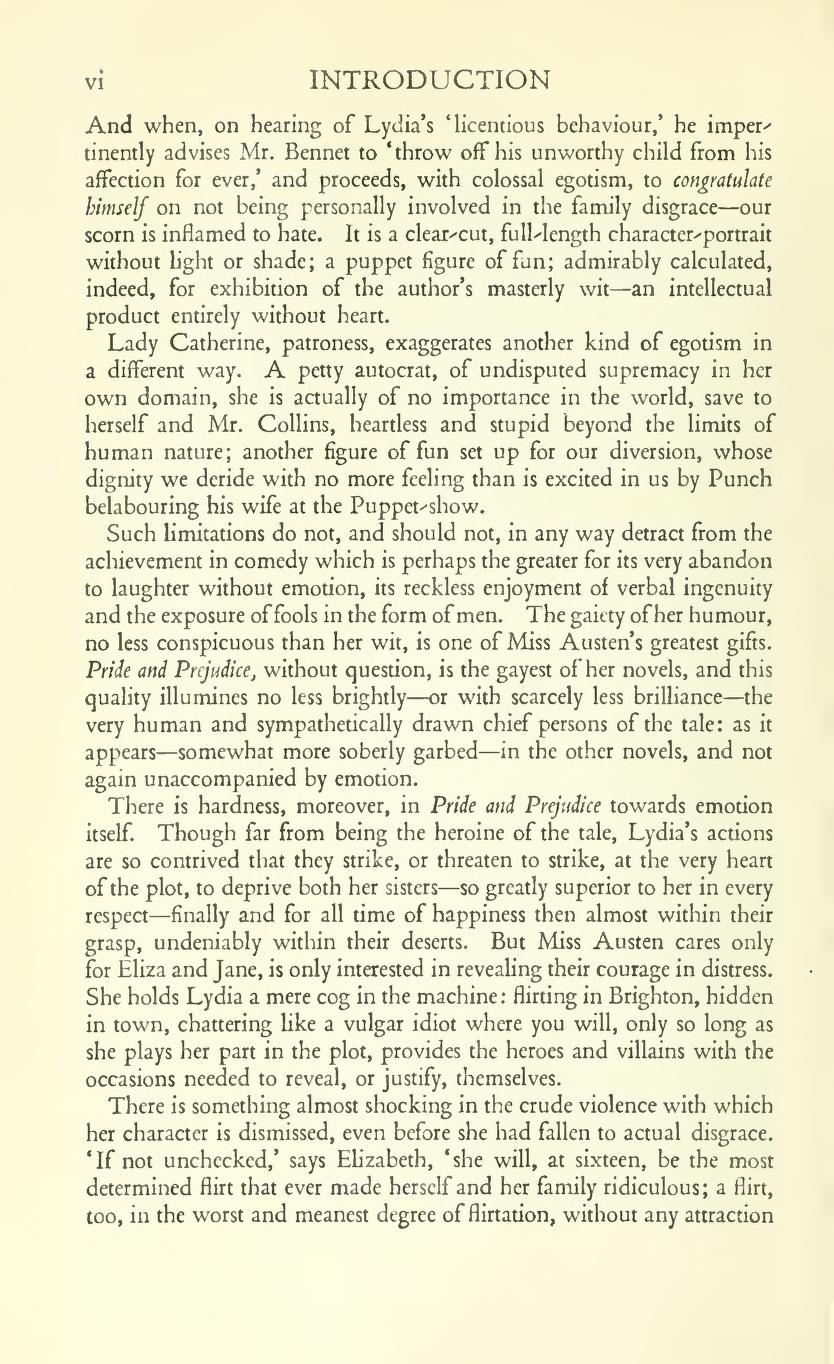 ............prev.....................next
............prev.....................next{{prxprf006.jpg}} || vi INTRODUCTION
And when, on hearing of Lydia's 'licentious behaviour,' he impeiv
tinently advises Mr. Bennet to 'throw off his unworthy child from his
affection for ever,' and proceeds, with colossal egotism, to congratulate
himself on not being personally involved in the family disgrace -- our
scorn is inflamed to hate. It is a clear-cut, fulMength character^portrait
without light or shade; a puppet figure of fun; admirably calculated,
indeed, for exhibition of the author's masterly wit -- an intellectual
product entirely without heart.
Lady Catherine, patroness, exaggerates another kind of egotism in
a different way. A petty autocrat, of undisputed supremacy in her
own domain, she is actually of no importance in the world, save to
herself and Mr. Collins, heartless and stupid beyond the limits of
human nature; another figure of fun set up for our diversion, whose
dignity we deride with no more feeling than is excited in us by Punch
belabouring his wife at the Puppet-show.
Such limitations do not, and should not, in any way detract from the
achievement in comedy which is perhaps the greater for its very abandon
to laughter without emotion, its reckless enjoyment of verbal ingenuity
and the exposure of fools in the form of men. The gaiety of her humour,
no less conspicuous than her wit, is one of Miss Austen's greatest gifts.
Pride and Prejudice, without question, is the gayest of her novels, and this
quality illumines no less brightly -- or with scarcely less brilliance -- the
very human and sympathetically drawn chief persons of the tale: as it
appears -- somewhat more soberly garbed -- in the other novels, and not
again unaccompanied by emotion.
There is hardness, moreover, in Pride and Prejudice towards emotion
itself. Though far from being the heroine of the tale, Lydia's actions
are so contrived that they strike, or threaten to strike, at the very heart
of the plot, to deprive both her sisters -- so greatly superior to her in every
respect -- finally and for all time of happiness then almost within their
grasp, undeniably within their deserts. But Miss Austen cares only
for Eliza and Jane, is only interested in revealing their courage in distress.
She holds Lydia a mere cog in the machine: flirting in Brighton, hidden
in town, chattering like a vulgar idiot where you will, only so long as
she plays her part in the plot, provides the heroes and villains with the
occasions needed to reveal, or justify, themselves.
There is something almost shocking in the crude violence with which
her character is dismissed, even before she had fallen to actual disgrace.
'If not unchecked,' says Elizabeth, 'she will, at sixteen, be the most
determined flirt that ever made herself and her family ridiculous; a flirt,
too, in the worst and meanest degree of flirtation, without any attraction
[[vi]]